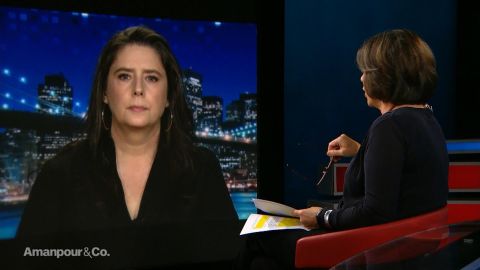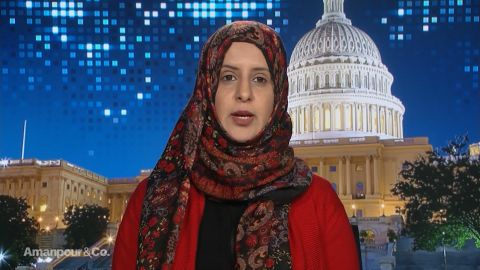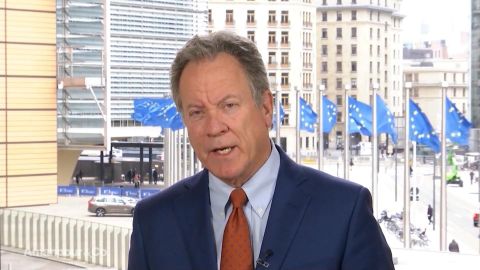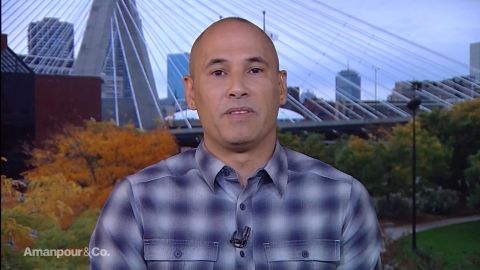Read Transcript EXPAND
You were detained on orders from the Saudi led coalition.
Describe that for me.
Why is it so difficult, apart from the terrible danger to do the kind of work that you're trying to do to hold all parties accountable?
You can imagine to be human, an independent human rights organization in the middle of armed guards and your neighbor is Saudi Arabia and all of them, they don't want the truth to be told because all of them are committing horrible violations against civilians on the ground and as our work is document, we have field researchers all over Yemen and we document the violations and then we issue statements, reports and documentary films and more than one of our researchers have been detained by Houthi and by other groups and on our way out of Yemen this time, we were detained, me and my colleague and husband, we were detained by the coalition and they detained us for about 12 hours and we have been released because of very high pressure and after I heard about the Khashoggi case, I just felt like a survivor because anything could happen to us at that moment of detention.
Do you believe that today, after the Saudi king has now said he supports a political solution to Yemen, the Houti rebels have said that they will stop their drone and other missile attacks.
The Saudis have said that they will stop attacking around the Hodeida port.
Do you believe there is a political moment right now that can be grabbed and what are you saying during your visits with political leaders in the United States?
It is the moment now.
Peace in Yemen since the beginning is always possible.
It never happened because there is no political will, but now it is very different, especially after the Khashoggi murder.
So it's special and unique whether we take it or we will lose it for until we never know when.
So we are pushing for peace and accountability because, as I said, it's a very preventable violations but all parties are conflict.
They do a lot of violations because there is no kind of accountability.
So cease fire is a one first step, but it is not all.
There should be a full political agreement that helps Yemenis to restart their state again, to restart their lives again.
So U.S., U.K. and France they said they decided since the beginning of the war in Yemen to fuel the war by sending weapons and also by political support to the Saudi led coalition, but now it's the time to stop this and to go to positive I mean steps towards peace in Yemen.
It is very possible and all parties to the conflict in Yemen are weak.
There is a balance of weakness between all of them and they are all losers.
They need only to be pushed to go to the table and most of the Yemenis are still civilians in spite of this horrible war, so the chance are very big and if we lose it, it's going to be a very very big lose and we will never know when this chance will come again to Yemen.
About This Episode EXPAND
Christiane Amanpour speaks with David Beasley, Executive Director of the World Food Programme; Yemeni human rights activist Radhya Almutawakel; and Blair Foster, director of the docuseries “The Clinton Affair.” Hari Sreenivasan speaks with investigative reporter A.C. Thompson.
LEARN MORE



